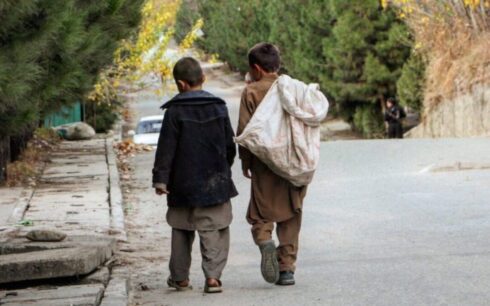Kabul, Afghanistan — Internal rift has emerged among the Taliban leadership over decision-making processes, according to former interior minister Mohammad Umer Daudzai.
He reacted to remarks made by the Taliban’s leader, Hibatullah Akhundzada, during the Eid al-Adha prayer, stating that Akhundzada has been making unilateral decisions, which have caused disagreements among senior Taliban leaders.
In a rare speech at Kandahar’s main mosque, Akhundzada acknowledged the internal disagreements and expressed a willingness to step aside to prevent further conflict. His remarks have raised questions about the unity within the Taliban.
“There are differing opinions regarding some policies for which Mullah Hibatullah Akhundzada is responsible, but the rest of the government members have disagreements,” Daudzai said. He cited decisions about girls’ schools, women’s work, and a recent policy setting a salary of 5,000 afghanis for women as examples of policies made without consultation. “There is no consultation mechanism within the Taliban movement that requires its supreme leader to consult before making a policy-level decision.”
Akhundzada insisted that obedience to his leadership is obligatory but expressed a willingness to be advised by others. This stance contrasts with his continued resistance to addressing the demands of the Afghan people and the international community regarding girls’ and women’s education and the formation of an inclusive government.
These remarks come amid reports that Sirajuddin Haqqani, the acting Minister of Interior, traveled to the UAE two weeks ago and met with the head of state, which some political analysts believe may have influenced Akhundzada’s recent statements.
However, Taliban spokesman Zabihullah Mujahid denied any internal rifts or the possibility of Akhundzada stepping down. “Our secret is in our unity. Encouragement and persuasion are the responsibility of the leaders. It is not correct to interpret it as if there are problems. Mr. Haqqani is the most obedient and has been tested and remained steadfast on this path,” he said.
A report by the UN Secretary-General on Afghanistan, released in March, also noted increasing internal disagreements among Taliban officials regarding key governance issues. A Security Council report echoed these findings, stating that disagreements among Taliban leaders are evident and increasing.
Some political figures argue that there is no mechanism within the Taliban for scrutinizing Hibatullah’s unilateral decisions, leading to dissatisfaction among other leaders.





